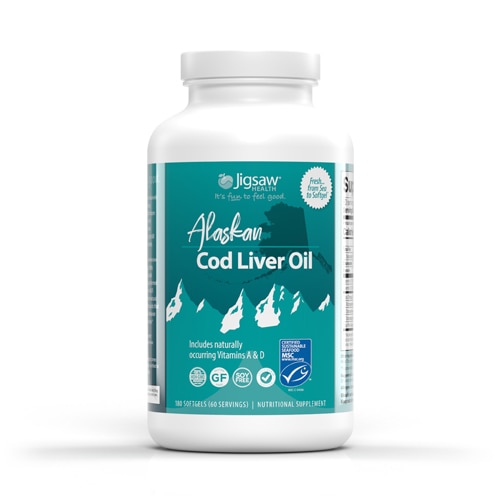February is
American Heart Month, which delivers the perfect opportunity to focus on how to nourish cardiovascular health through food choices. When discussing
heart-healthy eating, fat is often the most popular and discussed nutrient. So today, let’s do a deep dive into fat – particularly
saturated fat – and its relationship with heart health.

What are the different types of fats?
There are three main categories for fats:
trans, saturated, and unsaturated. Trans fats are an artificial form of fat found in highly processed foods, margarine and
hydrogenated oils. Research is conclusive in linking excessive trans-fat to
increased risk for cardiovascular disease. On the flip side, moderate consumption of polyunsaturated and monounsaturated fats, found in vegetable oils, avocados, fish, nuts and seeds, can deliver a wide array of health benefits, including reducing risk for cardiovascular disease. However, recommendations on saturated fat may not be as clear.
What are saturated fats?
In the simplest of terms, saturated fats are those fats that are solid at room temperature. In the diet, saturated fat is found in animal products such as meat, full-fat dairy and butter, as well as tropical oils, like coconut and palm kernel oil.
The ‘saturated’ controversy
According to the
American Heart Association (AHA), a heart healthy nutrition plan should minimize saturated fat intake to no more than 7 percent of calories consumed daily. The AHA recommendation is based on research linking excessive saturated fat intake to elevated LDL or “bad”
cholesterol, which in turn, puts one at higher risk for cardiovascular disease.
Some researchers and medical professionals argue that focusing on and limiting just one nutrient may not be the best approach. Rather, emphasis should be placed on overall diet quality, as we do not consume macronutrients (fat, carbohydrates and protein) in isolation. Foods are a mixture of all nutrients, including essential vitamins and minerals, and limiting foods with saturated fat may limit consumption of other key nutrients.
Furthermore, there are researchers who have found
insufficient evidence for associating saturated fat with increased risk for cardiovascular disease, as well as
other chronic health conditions. Additional research has gone as far as stating foods that contain saturated fat, such as
full-fat dairy, may have a neutral or protective effect on heart disease risk.
How to consume saturated fat in a heart healthy diet
All sources of saturated fats are certainly not created equally. For instance, consuming saturated fat from fast food, fried foods, baked foods and processed foods is not the same as consuming saturated fat from full-fat dairy, grass-fed meat or coconut. In fact, it is widely accepted that highly processed sources of saturated fat are linked not just to heart disease, but also obesity and many other health conditions.
If you choose to consume foods that contain saturated fat, prioritize the following:
- Eggs from pasture-raised chickens – Eggs are an excellent source of protein and many essential nutrients. While many avoid the yolk to decrease fat and cholesterol intake, the yolk is where many key nutrients are located. Additionally, eggs are one of the few non-seafood sources of docosahexaenoic acid (DHA), a key omega-3 fatty acid of which adequate intake is associated with improved heart health. If possible, choose eggs from pasture-raised chickens, as they can have up to 5 times higher omega-3 content.
- Full-fat dairy – As mentioned above, regular consumption of dairy may reduce risk for high blood pressure, stroke and type 2 diabetes, while having a neutral impact on overall risk for cardiovascular disease. Furthermore, dairy products are an excellent source of other important nutrients for health, including protein, potassium and many essential nutrients such as calcium, magnesium, phosphorus, vitamins A, D and B12, riboflavin, niacin and pantothenic acid. Many of these nutrients are fat-soluble, meaning they are better absorbed with the presence of fat.
- Grass-fed beef – While several health professional advocate for limiting red meat intake, it is reasonable to want to enjoy a serving of red meat from time to time. Choosing grass-fed beef may be advantageous, as emerging research believes beef from grass-fed animals to have less saturated fat and increased amount of heart healthy omega-3 fatty acids. Still, opt for leaner beef with less than 10 percent fat when possible.
- Coconut oil – In comparison to other sources of saturated fat, coconut oil may boost HDL cholesterol, which can have cardioprotective effects on the body. Researchers hypothesize that this is due to coconut oil consisting mainly of medium-chain fatty acids and a high percentage of lauric acid. However, further larger research studies are needed to confirm coconut oil claims. Regardless, coconut oil may be a good option if you are cooking at high temperatures, as it is more stable and less likely to break down and smoke.
Tips for reducing saturated fat intake in the diet
- If replacing butter with oil when cooking, prioritize the use of extra virgin olive oil which has been studied for its cardiovascular benefits. If looking for variety, choose oils with a good ratio of omega-3 to omega-6 fatty acids such as avocado and canola oil over soybean, corn, sunflower and safflower oil. Due to the use vegetable and soybean oils in processed foods, the American diet delivers higher amounts of omega-6 versus omega-3 fatty acids. This may be problematic, as some evidence has suggested an imbalance in the omega-3 to omega-6 ratio to lead to inflammation over time and increase risk for cardiovascular disease.
- Rather decreasing your intake of omega-6 fatty acids, focus on increasing intake of omega-3 fatty acids, as adequate intake has been proven to significantly reduce disease risk by decreasing inflammation in the body, lowering “bad” LDL cholesterol, and raising “good” HDL cholesterol. Consider swapping red meat for salmon or trout at dinner once per week or enjoy oysters. If you are not a huge fan of fish, consider a fish oil supplement containing eicosapentaenoic acid (EPA) and DHA, which are the two omega-3 fatty acids found solely in fish and seafood.
- Avoid replacing saturated fats with processed and simple carbohydrates, as doing so may increase risk for heart disease. This is often seen at breakfast time, when individuals try to avoid eggs and other breakfast meats by choosing sugary cereals or processed breakfast pastries. Instead, embrace the egg and pair with a whole-grain carbohydrate with at least 3 grams of dietary fiber per serving. The dietary fiber will give an additional benefit for your heart health by helping to lower cholesterol in the blood.
- Moderation and balance are best! It is best to avoid cutting whole food groups and nutrients from the diet, as doing so may limit your intake of key nutrients for your health. But keep in mind, all forms of fat – saturated or unsaturated – are calorically dense, meaning they deliver more calories per grams than their protein and carbohydrate counterpoints. If you have a goal of weight loss, portion control will be key to helping you enjoy all forms of fat in the diet.
Future research coming soon!
This is not the last you will hear about the role of saturated fats and cardiovascular health. Researchers continue to prioritize the subject, so stand by for the newest recommendations in years to come! In the meantime, focus on a diet that is rich in whole and unprocessed foods, as this will be the best choice for your heart.




